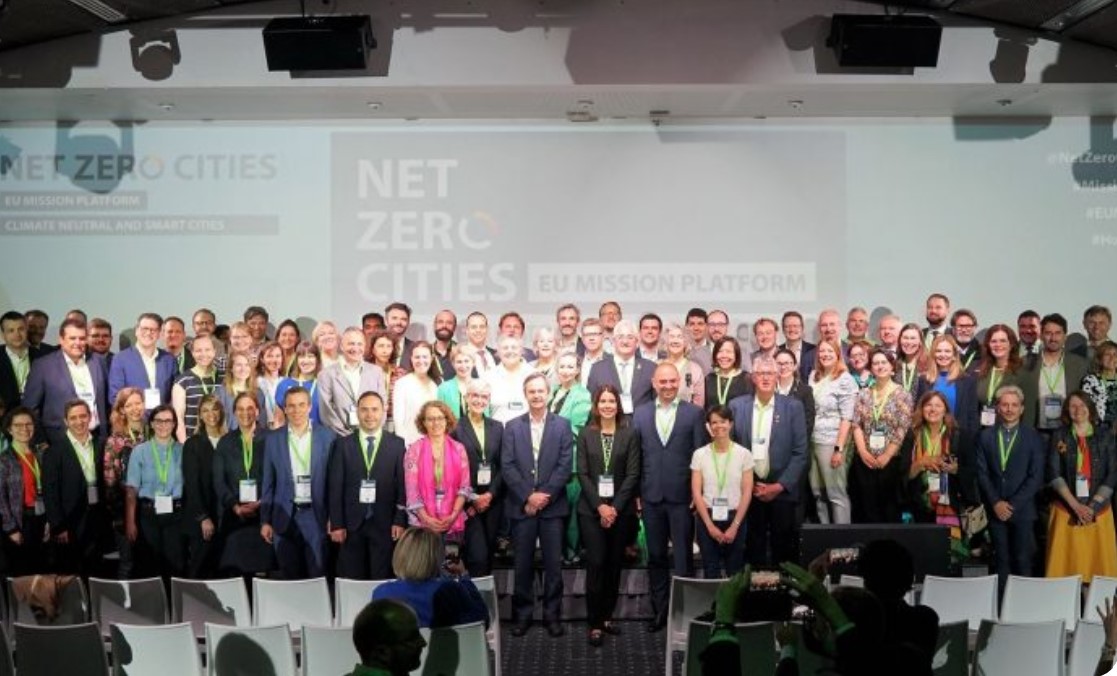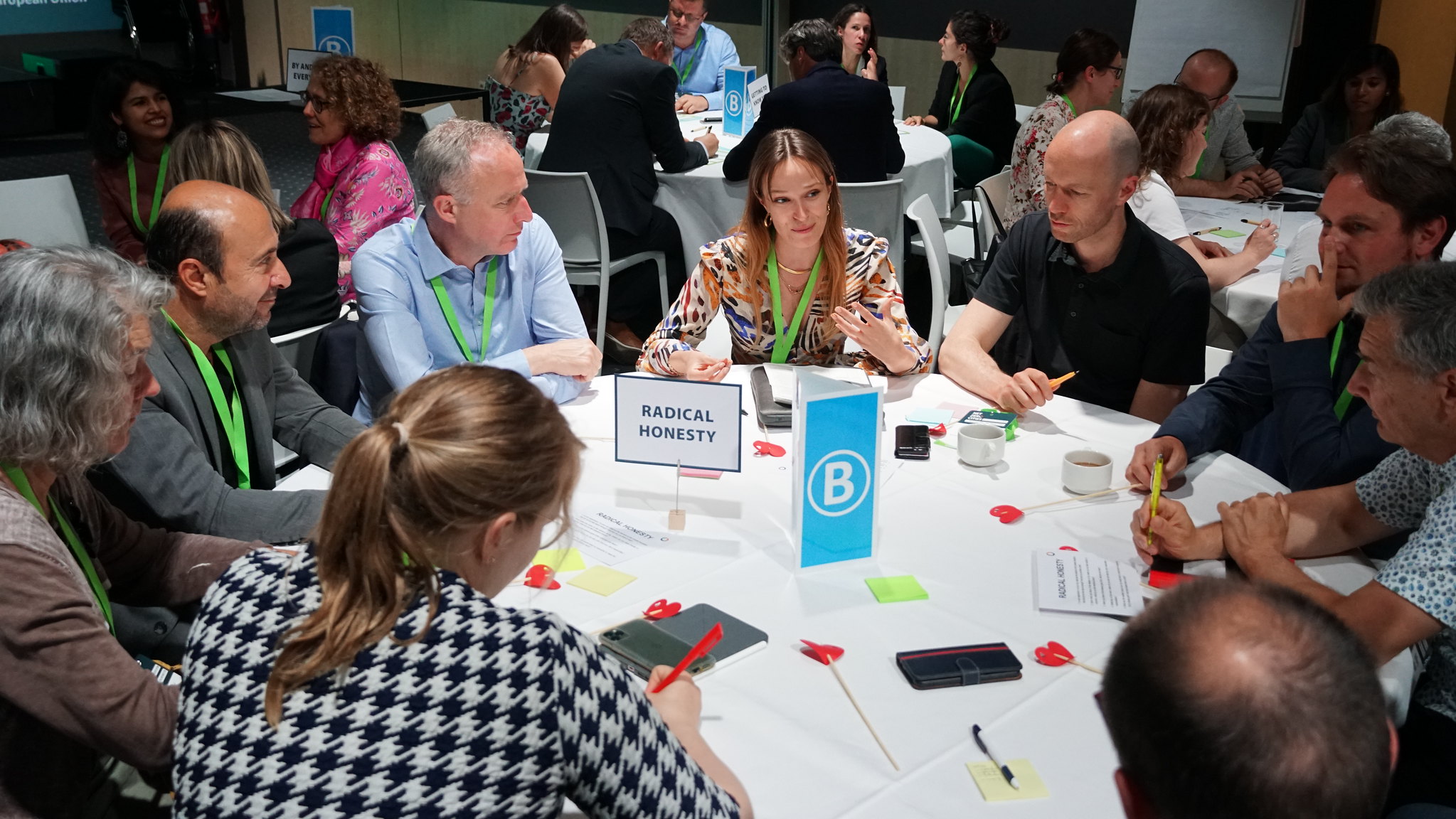100 European cities take up the challenge to become carbon neutral by 2030

On Monday 13 June, the representatives of the 100 European cities selected to participate in the European Mission “100 climate-neutral and smart cities by 2030” met for the first time in real life in Brussels.
This meeting, officially kicked off the cities journey towards climate neutrality under the NetZeroCities programme.
Frans Timmermans, Vice-President of the European Commission, congratulated the selected cities and stressed that they are at the forefront of climate action in Europe and that the European Commission will support them in this challenge. The meeting was attended by representatives of the selected cities, representatives of the NetZero Cities consortium, as well as members of the European Commission.
“Cities are at the heart of our fight against the climate crisis. Greening open spaces, tackling air pollution, reducing energy consumption in buildings, advancing clean transport – there are so many ways cities are the hubs of innovation we need for this transition. We also need to ensure that this is a just transition. It will be just or there will be no transition. The Cities Mission is hugely important for the just transition and the European Green Deal because it will demonstrate that a fair transition to climate neutrality is possible,” said Timmermans.

377 cities from all 27 European Union countries applied to be part of the Mission. The European Commission selected 100 EU cities, representing represent 12 per cent of the EU population, as well as an additional 12 cities from countries associated with Horizon Europe (2021-2027). The cities selected for this Mission will be fully supported by the NetZeroCities programme led by EIT Climate-KIC and will receive EUR 360 million of Horizon Europe funding from 2022 to 2023, to embark on innovation pathways towards climate neutrality.
The programme will address clean mobility, energy efficiency and green urban planning. It also provides an opportunity to share best practices to build joint initiatives and expand collaboration with other EU programmes, which is one of the key aspects of addressing this challenge, according to Dr. Kirsten Dunlop, CEO of EIT Climate-KIC:
“The mission is not just about the ‘what’, but also the ‘how’. It’s about solid, thoughtful collaboration. It’s about bringing together departments, budgets, ministries, colleagues and those who don’t normally come together around the same table, bridge silos and sectors where combinations happen because people begin to see the possibilities. 2030 is a number that we have told ourselves matters and what matters about that number is not the actual number. What matters is that we try. And that in this space of possibility every ground we gain, every inch, every heart, and every person who comes to the table with a different spirit to do something together is a triumph. Because the power of imagination, the power of collective effort and the power of learning from each other really give us something that is a dynamic system of actions and that has power.”

The event also featured a presentation of the NetZeroCities Climate City Contracts, which will be developed with local stakeholders and signed and implemented by each participating city. The Contracts include plans for the city to achieve climate neutrality, as well as an investment plan.
In the afternoon, the cities representatives participated in workshop sessions and visited information stations addressing e.g. the role of city Advisors, the new mission platform, the importance of monitoring and learning and Climate City Contracts. Around 300 people attended the meeting in Brussels, including Konrad Fijołek, president of Rzeszow (Poland), the Italian Minister of Sustainable Infrastructure and Mobility, Enrico Giovannini and the Mayor of Prato (Italy), Matteo Biffoni, and the Municipality of Ioannina (Greece). Another 350 participated in the event online.

Led by EIT Climate-KIC, NetZeroCities consists of 33 partners from 27 European countries and acts as a platform tailored to cities’ sustainability needs and supported by climate practitioners. It will provide European cities the support and solutions they need to achieve their net-zero goal in a socially inclusive way. NetZeroCities will also support a series of pilot projects to help drive rapid learning on how to achieve climate neutrality at the city level and implement a twinning programme to facilitate peer-learning. The project will provide cities with capacity building on systemic change, citizen engagement and democratic governance, capital and financial structuring, and social innovation.
Read more about the selected cities here


 Share this page
Share this page


